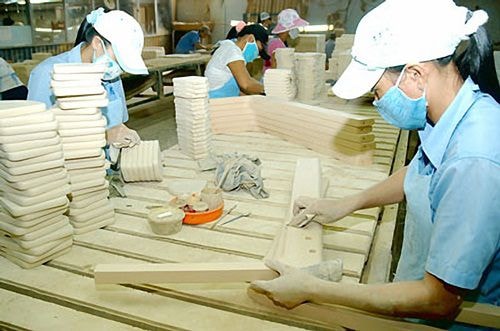Vietnamese businesses are confused with the ASEAN market.
The time for the formation of the ASEAN Economic Community is approaching, but the majority of small and medium-sized enterprises in Vietnam are still passive and not prepared to seize the opportunity.
At the end of 2015, the ASEAN Economic Community (AEC) will officially take shape, creating a large market with 600 million people and a GDP scale that could be equivalent to the 7th largest economy in the world. According to the roadmap, import taxes on many goods in the region will be zero, creating a free flow of trade, in addition to the shift in labor, investment, services...
For Vietnam, ASEAN accounts for about 18% of total import-export turnover in the period 2005 - 2012. Therefore, AEC will be a great opportunity for businesses to expand their markets, but reality shows that Vietnamese businesses are not yet best prepared for this playground.
 |
| Many small and medium enterprises still do not have a specific and effective strategy when the ASEAN economic community is formed at the end of 2015. |
Mr. Nguyen Xuan Phu - Chairman of Sunhouse Group Joint Stock Company commented that many businesses are currently only familiar with serving the domestic market and do not understand much about surrounding markets, so they do not have specific analysis of the competitiveness of their products compared to competitors in the region.
"Vietnamese businesses pay very little attention to that, so there will certainly be a period in the integration process when businesses will be surprised by the rapid invasion of foreign goods, and many units may fall into difficulty," Mr. Phu shared with VnExpress on the sidelines of the ASEAN Economic Community and Competitive Strategy for Vietnamese Small and Medium Enterprises workshop.
Mr. Pham Dinh Doan - Chairman of Phu Thai Group said that retail will be a fiercely competitive field when the ASEAN economic community is formed, in addition to the tax commitments of ASEAN + 6 because many businesses in the region, from Thailand and Malaysia have become leading corporations in the world. Sharing the same view, economic expert Pham Chi Lan gave an example: "Thailand's acquisition of the Metro supermarket system will pose a great risk of competition because this unit accounts for 22% of Vietnam's retail market share, in the near future 22% may become Thai goods".
Economist Le Dang Doanh also pointed out the challenges facing the agricultural sector, which is currently Vietnam's export strength. "Agriculture is 50-50. Crops, food and aquatic products have opportunities, but sugarcane, soybeans and corn are facing difficulties. Livestock farming is in danger, the three main subjects are pigs, chickens and cows, which are sure to lose. Small-scale chicken farming, which is not competitive, including meat chickens and egg-laying chickens, is very vulnerable. Regarding pig farming, Vietnam has a domestic advantage because people have the habit of using fresh meat. However, this consumption trend will quickly change," he commented.
However, leaders believe that there is no other way and Vietnamese businesses are forced to face this game. "AEC is about to be established, when there are difficulties, everyone has to think," Mr. Phu emphasized.
According to economic expert Pham Chi Lan, first of all, businesses must grasp their commitments to properly implement them, promptly restructure, and build strategies to improve their competitiveness. There is no general advice for businesses, but Ms. Lan believes that every business must redefine its advantages to choose its target products, and at the same time build a chain of links and a suitable business culture to gain a foothold and go the long way.
Another method for small businesses, also mentioned by Mr. Pham Dinh Doan, is joint ventures, based on strong positions. At that time, leaders must grasp the advantages of the business, for example, when a partner asks to buy, they must answer how many customers they have, how many businesses they distribute to, because these are assets. "When we are small, we should put all our eggs in one basket, only when we are very large should we diversify into a supply chain," he added.
According to VnExpress
| RELATED NEWS |
|---|
